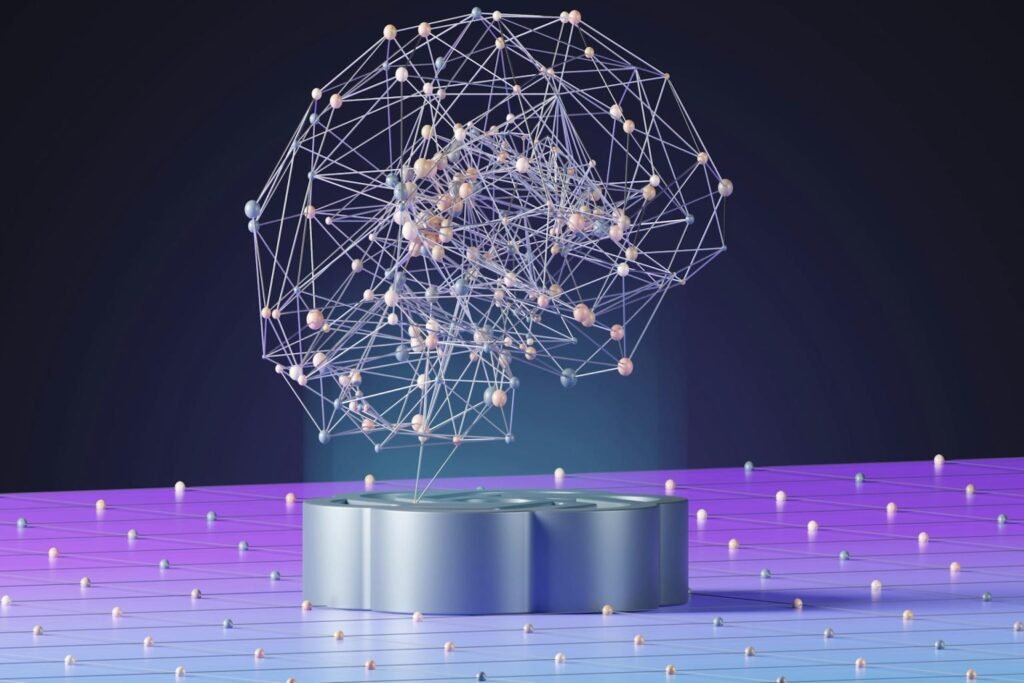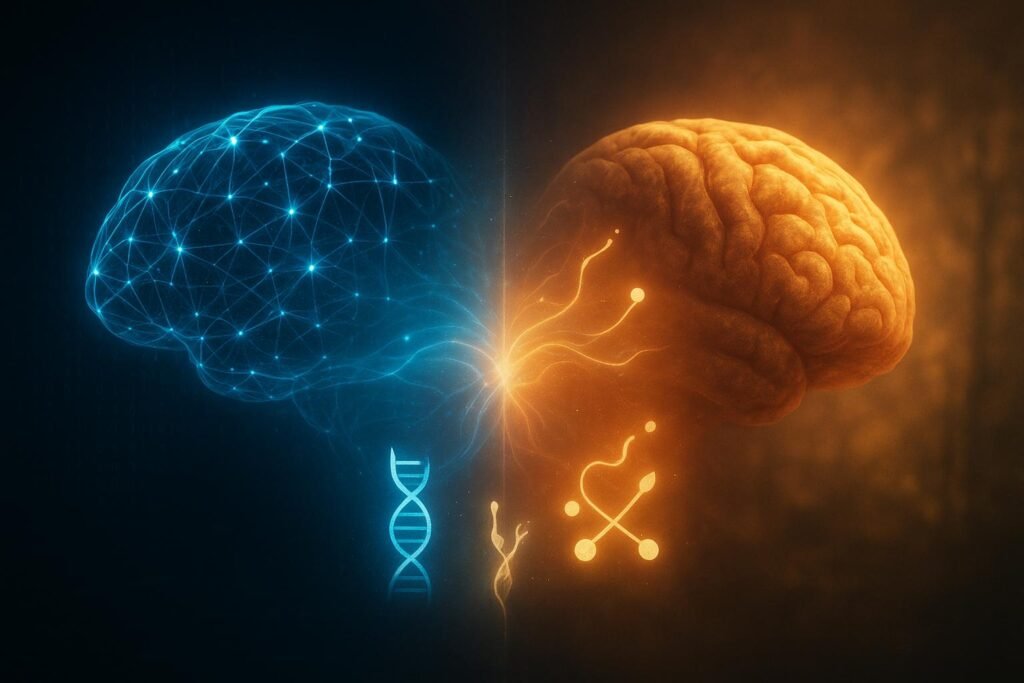Introduction: The Digital Duel of the Century
Imagine a world where artificial intelligence (AI) diagnoses diseases with pinpoint accuracy, drives cars safer than humans, and writes poetry that moves the soul. Now, imagine that same AI struggling to understand sarcasm, lacking genuine empathy, or failing to make ethical decisions in a crisis. This is the paradox of the digital age: AI’s breathtaking capabilities juxtaposed with its profound limitations. As AI permeates every aspect of our lives—from healthcare to creative arts—the question arises: Who wins in the battle between artificial intelligence and human intelligence? The answer, as it turns out, is far more nuanced than a simple verdict.
Defining the Contenders: Artificial Intelligence and Human Intelligence
What Is Artificial Intelligence?
Artificial intelligence refers to the simulation of human intelligence processes by machines, particularly computer systems. Artificial Intelligence refers to the ability of machines to mimic human cognitive functions such as learning, reasoning, and problem-solving. Today, AI powers chatbots, virtual assistants, predictive analytics, and even medical diagnoses. It thrives on vast amounts of data and algorithms designed to recognize patterns and adapt over time. These processes include learning, reasoning, problem-solving, perception, and decision-making. Key branches of AI include:
- Machine Learning (ML): Enables computers to learn from data without explicit programming
- Natural Language Processing (NLP): Allows machines to understand and generate human language
- Computer Vision: Empowers computers to interpret and analyze visual information

AI’s strengths lie in its ability to process vast datasets at incredible speeds, perform repetitive tasks with consistent accuracy, and operate 24/7 without fatigue.
What Is Human Intelligence?
Human intelligence encompasses a broad range of cognitive abilities, including:
- Reasoning and Logic: The capacity to think critically and draw inferences.
- Creativity: The ability to generate novel ideas and solutions.
- Emotional Intelligence: Understanding and managing emotions, both personally and in others
- Adaptability: Quickly adjusting to new environments and unexpected challenges
Unlike AI, human intelligence is deeply influenced by context, culture, and subjective experience.
Strengths and Weaknesses: A Comparative Analysis

Where Artificial Intelligence Excels?
- Speed and Scalability: AI can analyze millions of data points in seconds—a task that would take humans years. For instance, AI algorithms detect fraudulent financial transactions in real-time.
- Accuracy and Consistency: In fields like manufacturing and healthcare, AI performs tasks with minimal error. AI-powered systems analyze medical images with higher precision than humans, leading to earlier disease detection.
- 24/7 Availability: AI systems don’t need sleep or breaks. Chatbots and virtual assistants provide round-the-clock customer service.
Where Human Intelligence Dominates?
- Creativity and Innovation: Humans thrive in generating original ideas, whether in art, science, or business. AI can mimic creativity but lacks true originality.
- Emotional and Ethical Judgment: Humans navigate complex moral dilemmas and empathize with others. AI, however, follows programmed rules and may perpetuate biases present in training data.
- Adaptability: Humans excel in unpredictable scenarios. For example, a human doctor can comfort a patient while considering ethical nuances—a feat beyond AI’s capabilities.
Key Differences Between Artificial Intelligence and Human Intelligence
| Aspect | Artificial Intelligence | Human Intelligence |
|---|---|---|
| Processing Speed | Extremely fast; processes big data in seconds | Slower; limited by biological constraints |
| Creativity | Limited to pattern recognition and replication | Generates novel ideas and solutions |
| Emotional Intelligence | Lacks genuine empathy; mimics emotional responses | Understands and navigates complex emotions |
| Error Rate | Low in repetitive tasks | Prone to errors due to fatigue or bias |
| Adaptability | Requires reprogramming for new tasks | Quickly adjusts to new and uncertain situations |
The Irreplaceable Value of Human Intelligence
Despite AI’s capabilities, human intelligence offers qualities machines cannot replicate:
- Creativity & Innovation: Humans can compose symphonies, write novels, and dream up startups that change the world.
- Emotional Intelligence: Understanding emotions—both ours and others’—is central to leadership, relationships, and empathy-driven professions.
- Ethical Reasoning: AI might calculate the fastest route, but humans decide whether the destination is morally justifiable.
- Holistic Thinking: Humans excel at connecting disparate dots, contextualizing situations, and finding meaning.
A personal reflection: During my time leading a digital project, I saw AI analytics predict customer churn with precision. But when it came to designing a retention strategy, only human creativity—empathizing with user frustrations—made the solution effective. That blend was the winning formula.
Where Artificial Intelligence Outshines Humans?
To ignore AI’s superiority in certain domains would be shortsighted:
- Medical Imaging: AI detects early-stage tumors more accurately than radiologists in some cases.
- Language Translation: Real-time translation tools make cross-border communication seamless.
- Risk Analysis: Financial markets rely heavily on AI to manage billions in trades per second.
In these areas, the scale, speed, and precision of AI eclipse human limitations.
The Future: Symbiosis, Not Competition
The real question isn’t whether AI will replace humans—it’s how the two can collaborate. Experts increasingly advocate for a symbiotic model where AI handles repetitive, data-heavy tasks, while humans provide oversight, creativity, and ethical frameworks.
Think of it as a partnership: AI is the engine, and human intelligence is the driver.
Industries Leading the Way: Artificial Intelligence
- Healthcare: AI assists in diagnoses, while doctors focus on patient care and empathy.
- Education: Adaptive learning platforms personalize education, but teachers provide mentorship and moral guidance.
- Creative Fields: AI generates drafts or visual designs, but artists and writers bring vision and soul.
Key Insights: Who Wins?
If the competition were about speed, efficiency, or memory, Artificial Intelligence would win hands down. But if the game is about empathy, ethics, and creativity, human intelligence is still the reigning champion.
The takeaway: It’s not a zero-sum game. In the digital age, the winner is collaboration.
Conclusion: A Shared Future
The digital age is not about Artificial Intelligence versus Human Intelligence, but rather how they can amplify each other’s strengths. AI accelerates possibilities; humans give them purpose. Instead of fearing replacement, we should embrace augmentation.
As we stand at the crossroads of technology and humanity, the most important question isn’t who wins—it’s how we win together.
Call to Action: Artificial Intelligence
What’s your take—do you see Artificial Intelligence as a threat, a tool, or a partner? Share your perspective in the comments, and if you enjoyed this post, explore our related guides on emerging technologies and digital transformation. Let’s shape the future together.


